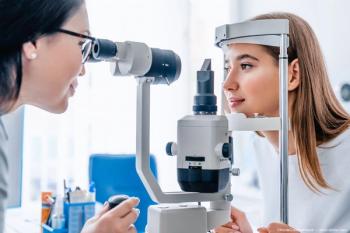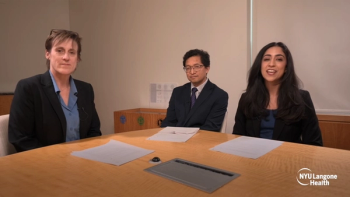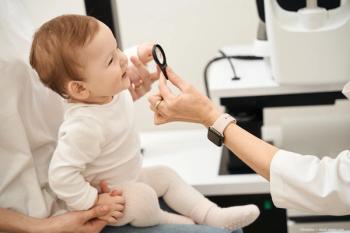
Vyluma announces positive results from CHAMP study of myopia drops
Preliminary data from the three-year, international study demonstrate safety and efficacy of NVK002 as a potential treatment for the progression of myopia in children.
Vyluma Inc. today announced top-line results from its Phase III Childhood Atropine for Myopia Progression (CHAMP) clinical study.
According to a news release from the company, the results were shared in an oral presentation at the American Academy of Optometry annual meeting in San Diego, California.
“CHAMP is the largest and longest placebo-controlled, prospective pediatric myopia study conducted to date and we are very encouraged by the results from the first stage,” said Navneet Puri, PhD, founder, chairman and CEO of Vyluma. “Myopia is a growing global epidemic that can have serious consequences for the vision of millions of children later in life, yet there are no currently available, regulatory approved pharmaceutical treatments.”
Vyluma said in the news release it plans to submit a New Drug Application for NVK002 to the U.S. Food and Drug Administration (FDA) as early as Q1 2023. If approved by the FDA, NVK002 would be a first-in-class, clinically proven pharmaceutical agent for the treatment of myopia progression in children.
Puri noted that while the company is conducting analyses of the data to assess the full results, the top-line results represent a significant landmark in myopia management and signify a potential new and more hopeful era on the horizon.
According to the news release, NVK002 was developed by Vyluma. It is a proprietary, investigational, low-dose, preservative-free atropine eye drop administered nightly.
The company noted that NVK002 leverages what is known about a well-characterized therapeutic agent, atropine, in a new low-dose, preservative-free formulation to help address the urgent need for pharmacological control of myopia. CHAMP is a three-arm, randomized, double-masked, placebo- controlled Phase III clinical study conducted across the U.S. and Europe in nearly 600 children and adolescents aged three to seventeen years at enrollment. The study consists of two stages: a completed three-year treatment period to evaluate the safety and efficacy of NVK002, after which enrolled patients were re-randomized for a masked, ongoing one-year treatment period to characterize cessation of therapy.
According to the news release, NVK002 at a dose of 0.01% atropine achieved statistically significant and clinically meaningful differences from placebo in every key outcome measure, including responder analysis, mean change from baseline in Spherical Equivalent Refraction (SER), and mean change from baseline in axial length at month 36. NVK002 at a dose of 0.02% demonstrated efficacy at several time points, including a statistically significant mean change in axial length compared to placebo at 36 months. Responder analysis was not statistically significant at month 36.
Moreover, the company noted in the news release that NVK002 at both doses demonstrated strong safety and tolerability which were comparable to placebo. There were no ocular serious adverse events (SAEs) and the incidences of non-ocular SAEs and discontinuations due to non-ocular SAEs were similar across treatment groups. The most common ocular adverse events were hyperemia, photophobia, allergic conjunctivitis, eye pruritis, and eye irritation.
Karla Zadnik, OD, PhD, FAAO, lead investigator and Glenn A. Fry Professor of Optometry and Physiological Optics and Dean at The Ohio State University College of Optometry, pointed out in the release that myopia is a serious condition that impacts the vision of 30% of the world’s population today and is expected to impact an estimated 5 billion people by 2050.
“The earlier myopia is addressed, the better,” Zadnik said in the news release. “The CHAMP study shows us that Vyluma’s novel formulation of low-dose atropine can make a clinically meaningful difference in treating children with myopia. This new evidence increases our scientific understanding of the safe and effective ways we can tackle this growing global burden.”
Vyluma has partnered with Laboratories Théa and Zhaoke Ophthalmology for commercialization of NVK002. Théa, the leading independent European pharmaceutical group in ophthalmology, will be responsible for the commercialization of NVK002 in Europe, and for the registration and commercialization in Canada, Mexico, and selected South American countries. Zhaoke Ophthalmology, a leading ophthalmic pharmaceutical company, will be responsible for the clinical development and commercialization of NVK002 in Greater China, South Korea, and certain select countries in Southeast Asia (Brunei, Burma, Cambodia, Timor-Leste, Indonesia, Laos, Malaysia, the Philippines, Singapore, Thailand, and Vietnam).
“Vision correction with single vision contact lenses and eyeglasses does not treat myopia progression, leaving children at risk of serious consequences later in life, so there is a clear unmet need,” Jean-Frédéric Chibret, president of Théa, said in the news release. “The CHAMP study is the first time that low-dose atropine has been studied extensively in a large U.S. and European population, in a well-controlled manner.”
Moreover, Dr. Li Xiaoyi (Benjamin), chairman of the Board of Directors, executive director and CEO of Zhaoke Ophthalmology, pointed out that in China, hundreds of millions of children and adolescents suffer from myopia.
“We are excited by the encouraging data in the U.S. and Europe,” Xiaoyo said. “This adds to the evidence for the NVK002 NDA submission to the Chinese regulator. Our intention is to bring this drug to market as soon as possible and these results take us one step closer in our mission to transform visual health in China.
Newsletter
Don’t miss out—get Ophthalmology Times updates on the latest clinical advancements and expert interviews, straight to your inbox.





























